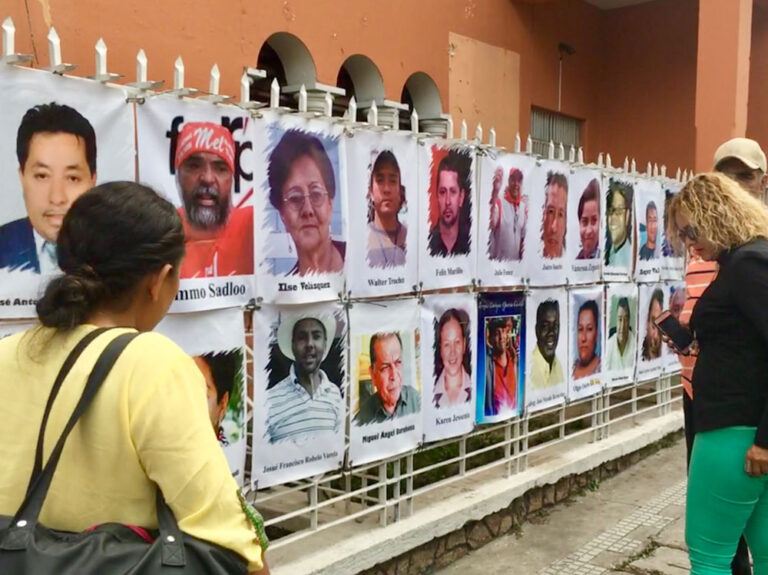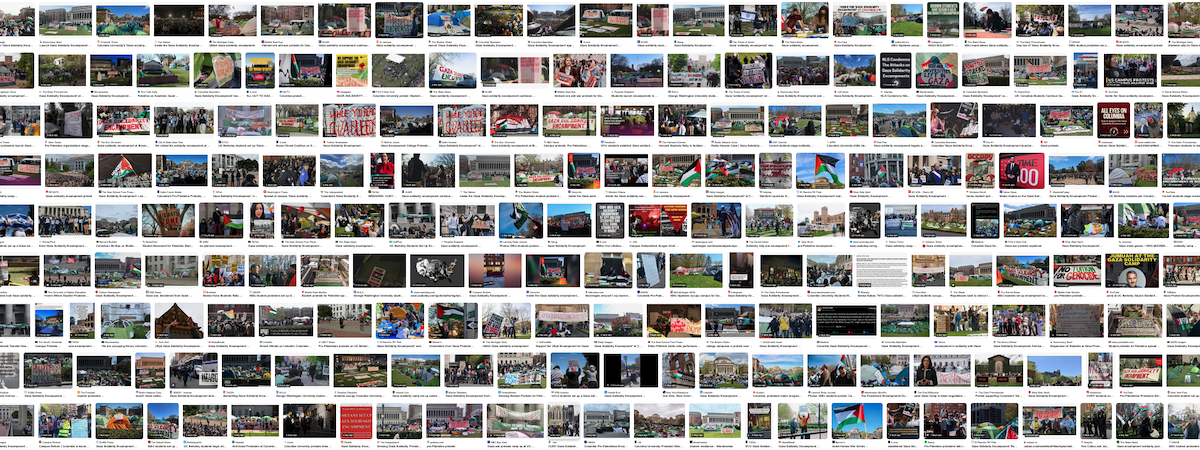By Jim Phillips
This year marks the fortieth anniversary of both Peace House and the Committee of Families of the Detained, Disappeared in Honduras (COFADEH) Peace House has been honored to offer sponsorship for the human rights accompaniment that Ashland resident Lucy Edwards has provided for COFADEH’s General Coordinator and co-founder, Bertha Oliva.
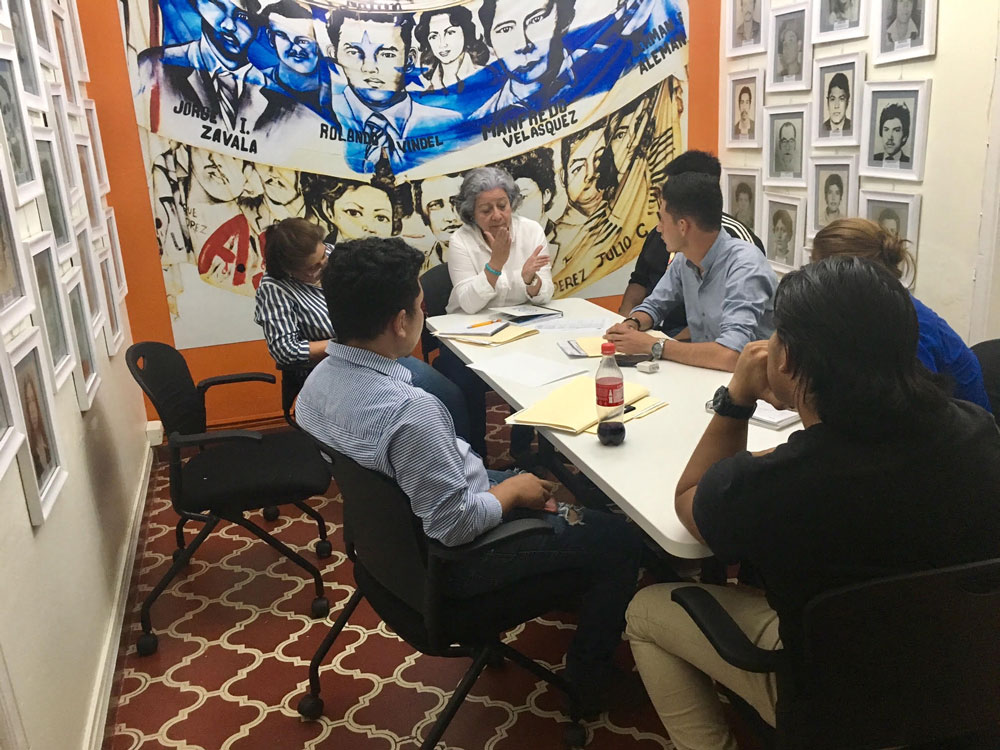
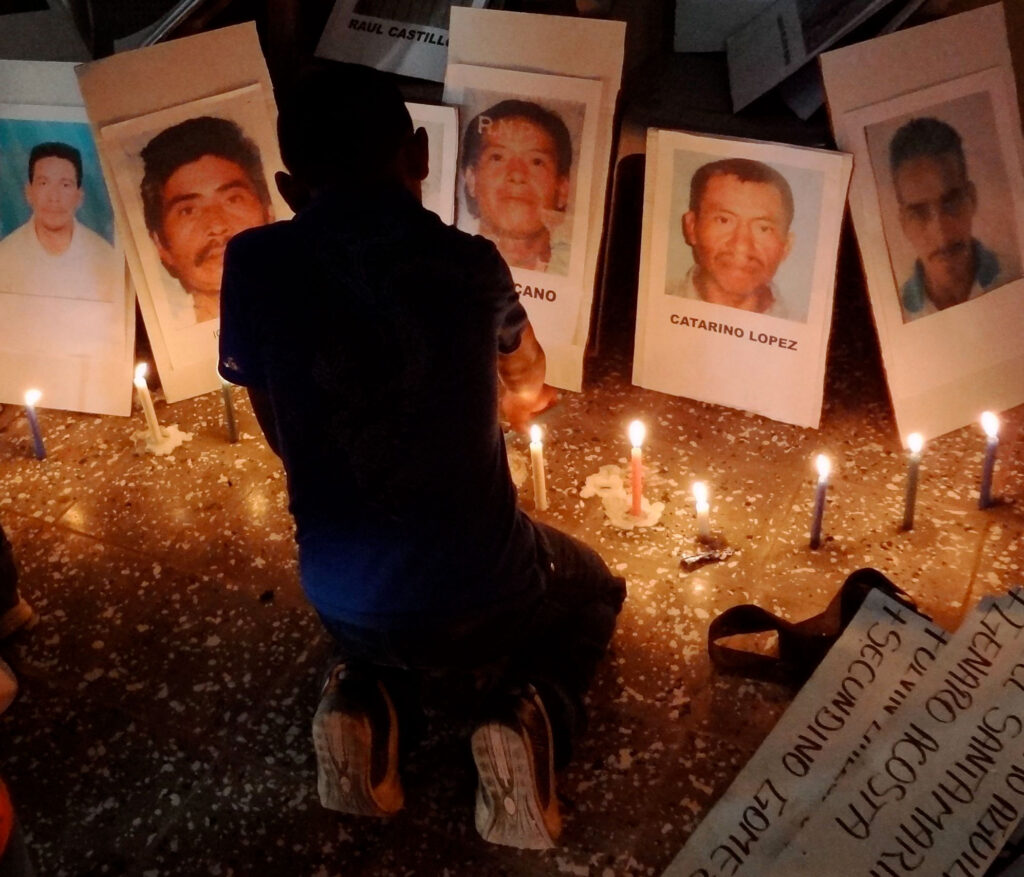
An important part of our anniversary celebration is our ability to be associated in this way with the work of COFADEH and its courageous and unflinching defense of human rights in Honduras.
Families of Disappeared Form Human Rights Organization
COFADEH was organized on November 30, 1982, by a group of family members of individuals who had been detained and disappeared by the Honduran police and military. It was a time when the doctrine of national security was brutally enforced in the country. This included the militarization of daily life; military checkpoints; roundups of so-called subversives; mass arrests and detentions. It also included a military death squad (Battalion 316); extrajudicial killings by the security forces; and the forcible disappearance of many individuals including Tomás Nativí, the husband of Bertha Oliva.
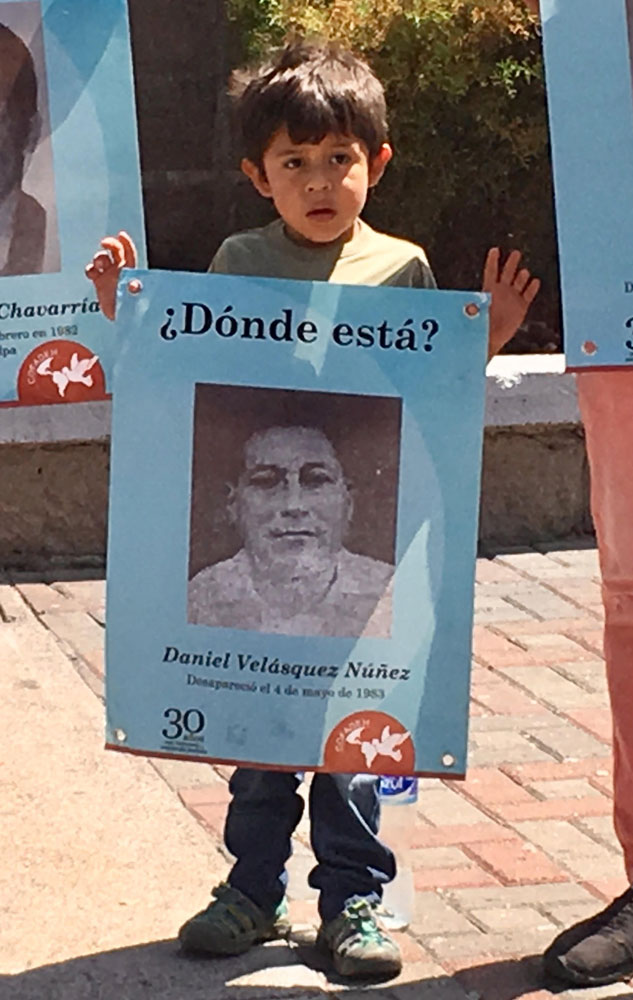
Twelve families of forcibly disappeared individuals joined together to form an organization that would continue to demand the return of the disappeared and the prosecution of their military captors. Because individuals in military or police detention too often disappeared while in custody, it was especially important to family members to monitor and guard the rights of the detained. Because disappearing someone is an attempt to erase that individual’s existence, a central work of COFADEH from the start was keeping alive the memory of each of the disappeared, still alive in the hearts and thoughts of the living.
By the early 1990s, COFADEH was engaged in direct monitoring of human rights abuses, legal defense of the rights of individuals and communities, education and training in human rights, and the documentation of rights abuses. The organization emerged as a leading critic of the governmental abuse of rights and the militarization of Honduran society. COFADEH also established collaborative alliances with other human rights organizations in Honduras and internationally, while maintaining its own focus and identity. By 1998, COFADEH was increasingly engaged in the defense of the rights of local communities that were being forcibly displaced or under threat and attack by powerful interests or the state. Because the threats against these communities usually involved the threat of destruction of their local environment, COFADEH found itself becoming an important defender of environmental rights and protection of the environment.
In all these efforts, COFADEH had to promote the demilitarization of Honduran society and ways of calling public authorities, such as the police and military to account for their actions. Impunity was the linchpin of much of the human rights abuse perpetrated by the state and the powerful. In 2001, COFADEH was awarded the country’s National Human Rights Award.
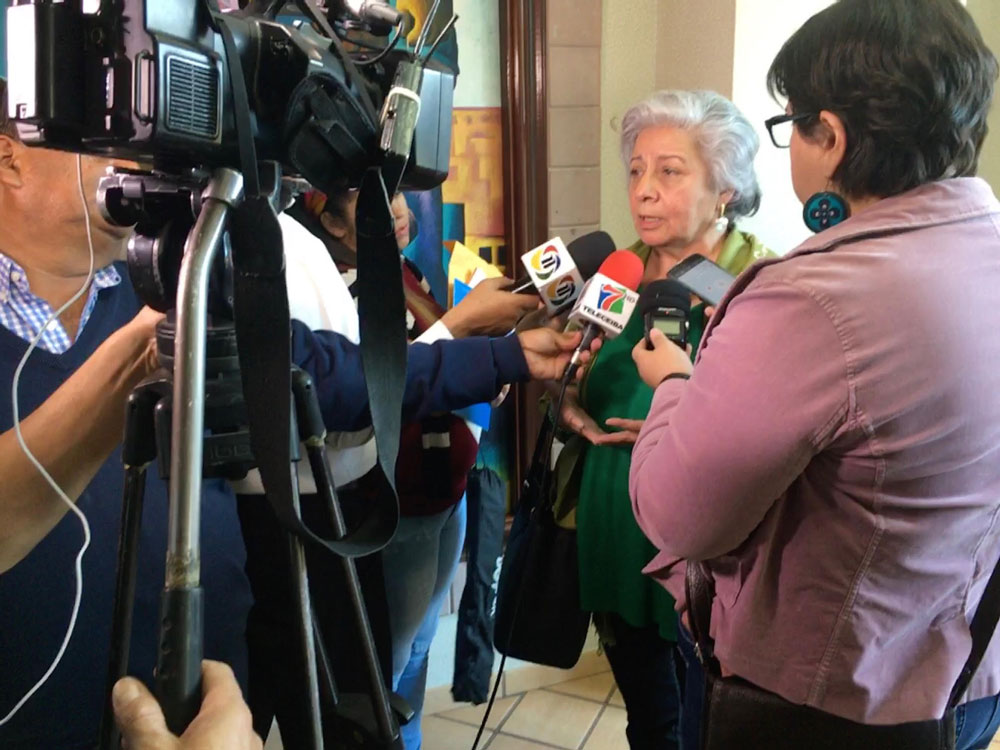
Twelve Years of Threats, Attacks and Assassinations
After the 2009 coup d’etat that ushered in twelve years of especially violent, corrupt, and dictatorial government, COFADEH’s work became even more important. Defending human rights, criticizing the Honduran government and U.S, policy toward Honduras, and speaking truth to power became even more dangerous. Berta Oliva and members of the COFADEH staff were almost constantly followed, watched, threatened, defamed, and sometimes attacked. Mainstream Honduran news media, controlled by the government and the wealthy elite that supported it, publicly defamed Oliva and Jesuit priest Ismael Moreno (Padre Melo) as terrorists, communists, or leaders of criminal organizations.
Moreno was director of Radio Progreso, a major commercial radio station that featured investigative news, critique of government abuses, and support for popular organizations and communities. Radio Progreso was one of the few media that remained critical of the government, and for that it was forcefully shut down temporarily several times, one staff member was killed, and others were threatened.
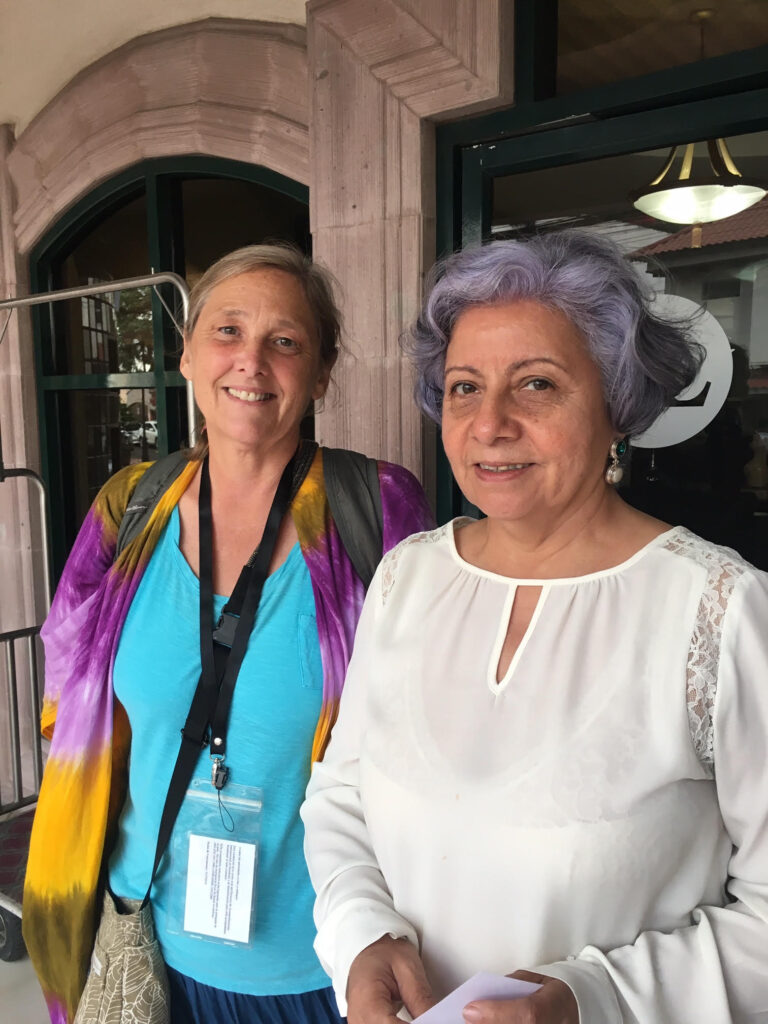
Accompaniment for Human Rights Work
To defend these courageous Honduran human rights defenders, the Honduran Accompaniment Project (PROAH) was formed in the United States to provide international volunteers who would accompany endangered human rights leaders in Honduras. Accompaniment means that the volunteer travels and remains with the Honduran human rights leader in order to assess dangers and provide a (hopefully deterrent) witness. It is the hope that such international accompaniment and witness helps the endangered human rights leader to remain in Honduras to continue working rather than be forced to seek asylum elsewhere. Accompaniment also involves work to educate US citizens and policy makers about the human rights impact of US policy and to advocate for policies of respect and peace.
In April 2010, PROAH received a request to provide short-term accompaniment for Padre Melo at Radio Progreso. Ashland residents Lucy Edwards and Reverend Pamela Shepherd (then pastor of Ashland Congregational United Church of Christ, UCC) volunteered. Since then, for twelve years, Edwards has continued her work of accompaniment in Honduras a few weeks or a month at a time, first accompanying Padre Melo, and for the past several years accompanying Bertha Oliva of COFADEH.
This work requires a network of supporting organizations outside of Honduras that can hold authorities in Honduras and the United States accountable for the safety of the person providing accompaniment. Such support is not financial but political in the broad sense. The network of support includes a local sponsoring organization and larger national organizations. Peace House provides the local support network for Lucy Edwards as she accompanies Bertha Oliva. Other groups, such as the Sisters of Mercy of the Americas, form a larger support network for accompaniment volunteers like Lucy.
Peace House is pleased to collaborate in this way, in support of COFADEH. Both organizations hold the education and defense of human rights, the demilitarization of society, and speaking truth to power as primary guiding values.
Congratulations to COFADEH and to Bertha Oliva for courageous work over forty years. The best wish we have is that the work of both COFADEH and Peace House will become unnecessary in the next forty years.
Dr. James Phillips is the author of Extracting Honduras, Resource Exploitation, Displacement, and Forced Migration, published by Lexington Books, 2022; copyright Rowman and Littlefield Publishing Group. He also authored Honduras In Dangerous Times; Resistance and Resilience, published by Lexington Books, 2015.

